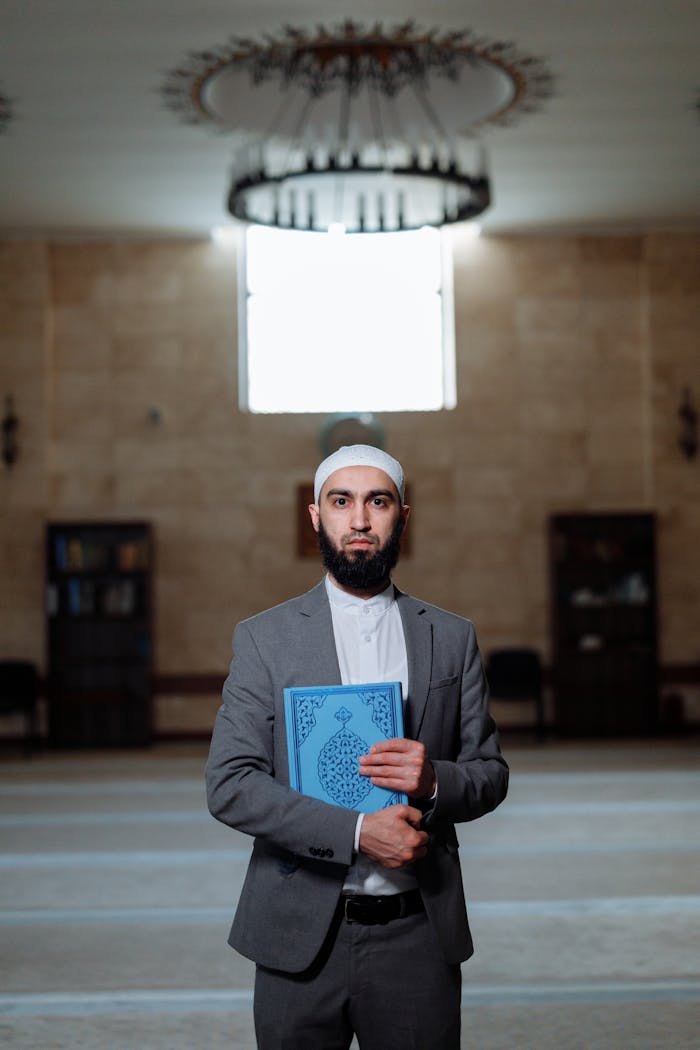Throughout Islamic history, there have been many examples of Muslims who managed to excel in their professions while also dedicating their time and energy to spreading the message of Islam (da’awah). Among the most inspiring examples are the Companions of the Prophet Muhammad (peace be upon him), many of whom were highly skilled professionals such as merchants, traders, and scholars. Their lives provide valuable lessons for modern-day Muslim professionals seeking to balance their careers with their duty to engage in da’awah.
1. Abu Bakr al-Siddiq: The Merchant Leader
Abu Bakr (may Allah be pleased with him), the first caliph of Islam and one of the closest companions of the Prophet, was a successful merchant before and during his involvement in spreading Islam. He was known for his integrity in trade, and his reputation for honesty drew people to him. His success in business never prevented him from supporting the Prophet’s mission, as he was one of the earliest Muslims and a key financial supporter of the Islamic cause.
Lesson for Today: Muslim professionals can see their work as a means to support da’awah. Just as Abu Bakr used his wealth to finance Islamic efforts, modern professionals can dedicate their skills, resources, and influence to uplift Islamic initiatives and causes.
2. Uthman ibn Affan: The Wealthy Philanthropist
Uthman (may Allah be pleased with him), the third caliph of Islam, was another wealthy merchant who used his resources to serve Islam. Known for his humility despite his wealth, he is famously remembered for buying a well in Medina to provide free water for the Muslim community. Even with his wealth, he lived modestly and focused on the well-being of the Ummah.
Lesson for Today: Uthman’s example shows that financial success and career achievements do not have to detract from one’s religious obligations. Instead, they can become powerful tools for advancing Islamic causes. Muslim professionals today can follow Uthman’s model by using their financial success to benefit their communities and support charitable causes.
3. Abd al-Rahman ibn ‘Awf: The Generous Entrepreneur
Abd al-Rahman ibn ‘Awf (may Allah be pleased with him) was one of the wealthiest of the Prophet’s companions. After migrating to Medina, he began his trading business from scratch and soon became one of the richest men in the city. However, his wealth did not distance him from his responsibilities as a Muslim. Instead, he used his resources to support the poor and finance battles and Islamic projects.
Lesson for Today: Abd al-Rahman’s ability to balance his entrepreneurial success with his role as a da’ee (one who invites others to Islam) shows that one can thrive in business without compromising on religious duties. Today’s Muslim professionals can learn from his dedication to contributing to da’awah through financial and personal efforts.
4. Zayd ibn Thabit: The Scholar and Administrator
Zayd ibn Thabit (may Allah be pleased with him) was one of the Prophet’s scribes and a highly respected scholar. He mastered multiple languages and was responsible for compiling the Qur’an after the Prophet’s passing. Though his career as a scholar and administrator was demanding, he never neglected his role in da’awah, working tirelessly to ensure the preservation of Islamic knowledge.
Lesson for Today: Zayd’s example is particularly relevant for Muslim scholars, academics, and professionals in education. His commitment to using his knowledge for the benefit of Islam shows that intellectual contributions can be a powerful form of da’awah. Today’s Muslim educators and intellectuals can similarly use their expertise to promote Islamic values in academic and professional environments.
5. Sa’d ibn Abi Waqqas: The Military Leader and Diplomat
Sa’d ibn Abi Waqqas (may Allah be pleased with him) was a military leader, but his influence extended beyond the battlefield. As a skilled diplomat, he played a key role in spreading Islam to China and other regions through peaceful negotiation and diplomacy. His dedication to Islam was apparent in all his roles, whether as a soldier, diplomat, or leader.
Lesson for Today: Muslim professionals in leadership or diplomatic roles can learn from Sa’d’s ability to balance professional excellence with a commitment to spreading Islam. His life shows that success in leadership positions can open doors for da’awah on a larger scale, especially through setting an example of Islamic ethics and principles.
6. The Merchant-Caravan Trade: A Model of Integrity in Business
Many of the Prophet’s companions, including Abu Bakr and Abd al-Rahman, engaged in caravan trade, which required extensive travel, negotiation, and skill. Despite the challenges, they maintained their Islamic values in their dealings. Their honesty, trustworthiness, and fair treatment of others attracted people to Islam, as these values stood out in a time when unethical practices were common.
Lesson for Today: Muslim professionals can emulate the Companions’ ethical approach to business, where their integrity and fairness serve as silent forms of da’awah. Whether in trade, business, or corporate settings, embodying Islamic values can inspire others and draw them toward the beauty of Islam.
Conclusion
The Prophet’s companions exemplify how to balance professional success with the responsibility of spreading Islam. They understood that their careers were not separate from their religious duties but a means to fulfill them. Modern Muslim professionals can learn from their examples by integrating their Islamic values into their work and using their resources, influence, and time to support da’awah efforts. In this way, a career becomes not just a source of income but a platform for spreading the light of Islam to others.



